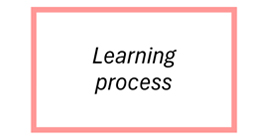Overview
Over the past two decades, rapid changes in land use due to demographic factors, social and political insecurity, and the impact of climate change have made governance and natural resource management more difficult for many African countries, affecting their food security.
In Sierra Leone and Mauritania, insecure tenure and unequal access to land and other natural resources affects food security and social stability. Conflicts between different users' groups to access natural resources are leading to conflicts, hampering sustainable use of the environment, responsible investments and economic growth. Tenure-related conflicts are particularly evident in pastoral areas, but also in other areas with other than agricultural activities such of mining, tourism, urbanization, forestry.
In this context, it becomes imperative addressing structural power imbalances by increasing the awareness and agency of the disadvantaged groups to improve their situation, among others by contributing to the building of inclusive road maps for transformative change in local governance of tenure.
Objectives
The project aims at promoting more inclusive and gender responsive local land governance and accountability mechanisms, through the strengthening of local institutions, participatory multi-stakeholder processes and data generation.
The project supports the empowerment of the most vulnerable groups through awareness raising on their land rights, capacity development and promoting collective action. The project also supports the development of accountability mechanisms, through the definition of country targets as part of the national land reform process, testing and application of assessment tools, promoting a Human Rights based approach.
The project promotes a reflection on the uptake of the VGGT principles at national and local level, contributing to improved understanding of VGGT application, through a bottom-up approach.
Sierra Leone
Background information
Background information
The Government of Sierra Leone has made considerable progress in the land sector in the past 10 years, partially as result of a successful application of the VGGT principles in different reform processes supported by the Government and CSOs. Starting from the adoption of the National Land Policy in 2015, a progressive Customary Land Rights Act and a Land Commission Act have been promulgated by the Parliament in August 2022, as well as the Gender Equality and Women’s Empowerment Act (GEWE) signed by the president in January 2023. All these instruments represent a milestone in the advancement of securing tenure rights for the most vulnerable and a significant step towards the realization of women’s land rights in the law. At the same time, the implementation of such laws requires the definition of clear roadmaps and implementation plans.
The project strives to improve local land governance by reinforcing and capacitating local institutions which play a crucial role in the implementation of the legislative framework, paying particular attention to the role of women and youth, promoting multistakeholder local dialogue on responsible governance, addressing in particular local government institutions, but also traditional leaders, bringing closer to the rural communities and more transparent the changes in act as result of new policies and laws.
The project also aims to increase the capacity of national actors to define land reform targets (national roadmaps), indicators and agree on long term monitoring mechanisms, in line with the VGGT principles, with the ultimate objective of increasing accountability.
» Land and Human Rights assessment

» Multistakeholder platforms

» Support to Village Areas Land Committees (VALC) Chiefdom Land Committees (CLC)

Mauritania
Mauritania has built new spaces for inclusive dialogue on land tenure issues, bringing all stakeholders together, including women and youth, which is a remarkable achievement towards more inclusion and participation in the social-cultural context of the country, where especially women and youth often remain marginalized. Since 2016, the Government has initiated a transparent, inclusive and participatory land reform process in order to adapt its legal instruments to support food security and sustainable development of its rural territories.
Yet, the pastoral sector faces numerous challenges such as absence of developed pastoral areas and the weakness of the trans-border transhumance governance and management system; and lack of recognition of women and youth rights access to resources.
To help overcoming such challenges the project strives to reinforce the capacities of members of national and local multi stakeholders’ platforms. The project addresses in particular the scarcity of knowledge from the pastoralists and their organizations about the existing legal framework and policies affecting their livelihood; lack of participation of the pastoralist organizations in pastoral land management; limited representation of women and youth in decision-making bodies.
The project also concentrates on improving the inclusivity and functioning of transboundary transhumance committees to prevent or mitigate land related conflicts, through tailored capacity development activities and sensitization practices.
Latest News
» October 2023 |Towards an inclusive land reform in Mauritania














